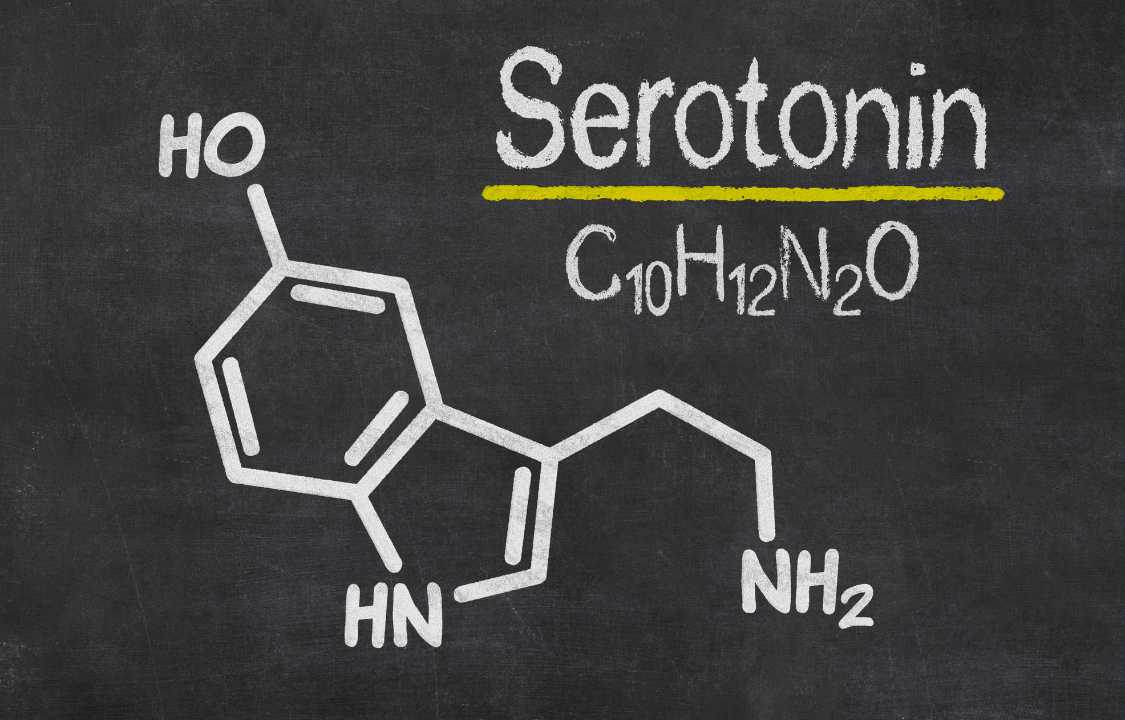Health Care, Mental Health
Everything to Know About Serotonin
Serotonin, often referred to as the “feel-good” neurotransmitter, plays a pivotal role in regulating various functions within our bodies. It’s primarily found in the gut, brain, spinal cord, and platelets. This neurotransmitter has a profound impact on our behavior, mood, memory, and overall well-being. Maintaining the optimal balance of serotonin is crucial for mental and physical health. In this extensive exploration, we delve into the multifaceted roles of serotonin, its effects when imbalanced, and strategies to regulate its levels.
The Multifaceted Roles of Serotonin
Serotonin serves as a versatile substance within our body, influencing a range of physiological processes. It acts as a neurotransmitter, hormone, mitogen, and vasoconstrictor. Its diverse functions include:
1. Regulating Bowel Function:
- Serotonin helps keep the digestive process moving in response to food in the gut.
- Excess serotonin release can lead to nausea.
2. Controlling Appetite:
- Serotonin reduces appetite as you eat.
3. Mood Regulation:
- It enhances nerve stimulation and electrical impulses, contributing to improved mood, happiness, and reduced anxiety.
4. Wound Healing:
- Serotonin aids in blood clotting when released into the blood, facilitating wound healing.
5. Sleep, Memory, and Learning:
- Serotonin plays a vital role in the central nervous system, influencing these critical functions.
6. Influencing Sexual Function:
- It affects both sexual function and libido.
7. Impact on Bone Density:
- Some studies suggest a connection between blood serotonin levels and bone density.
The Predominance of Serotonin in the Gut
While serotonin exists throughout the body, the gut contains a significant portion of it, highlighting its pivotal role in gastrointestinal functions. Despite being less abundant in the central nervous system, serotonin profoundly influences the regulation of these systems.
Serotonin Imbalance and Its Effects
An imbalance in serotonin levels can have profound consequences on mental and emotional well-being. Low serotonin levels are often associated with depression, manifesting as persistent feelings of sadness, anxiety, hopelessness, irritability, and more.
Strategies to Raise Serotonin Levels
If a healthcare provider determines that increasing serotonin levels is necessary, there are several approaches to consider:
1. Exercise:
- Regular physical activity, especially enjoyable exercises like biking or swimming, can boost serotonin levels and improve mood.
- Exercise is sometimes as effective as antidepressants in treating mood disorders.
2. Sunlight Exposure:
- There is a direct relationship between sunlight and serotonin production, with higher levels during longer daylight hours.
- Increased sunlight exposure has been linked to reduced symptoms of depression, particularly in older adults.
3. Dietary Changes:
- While dietary serotonin has limited impact on the brain, consuming foods rich in tryptophan, an amino acid involved in serotonin synthesis, can be beneficial.
- Foods high in tryptophan include cheese, chicken, fish, milk, and various seeds.
- Vitamin B6, found in foods like fish, chicken, and starchy vegetables, aids in serotonin production.
4. Medication:
- Healthcare providers may prescribe selective serotonin reuptake inhibitors (SSRIs) to increase serotonin levels in the treatment of anxiety and depressive disorders.
- Serotonin and norepinephrine reuptake inhibitors (SNRIs) can also be used for depression treatment.
Serotonin Overload and Serotonin Syndrome
Excessive serotonin levels can occur as a result of certain medications or drug interactions, leading to serotonin syndrome. This condition can be life-threatening and presents symptoms such as diarrhea, nausea, rapid heartbeat, hallucinations, and increased body temperature. Immediate medical attention is crucial if serotonin syndrome is suspected.
Conclusion
Serotonin, often referred to as the “feel-good” neurotransmitter, is a critical player in the intricate symphony of maintaining optimal mental and physical health. Its influence on our well-being is far-reaching, and comprehending the multifaceted roles it plays in our bodies is essential for a holistic approach to overall health.
One of serotonin’s primary roles is in regulating mood and emotions. Adequate levels of this neurotransmitter are associated with feelings of happiness and well-being, while imbalances can lead to mood disorders such as depression and anxiety. Additionally, serotonin plays a pivotal part in regulating sleep patterns, appetite, and even pain perception.
Recognizing imbalances in serotonin levels is crucial for addressing and preventing mental health challenges. Symptoms of low serotonin levels may include persistent sadness, fatigue, irritability, and disrupted sleep patterns. On the other hand, excessive serotonin activity can lead to agitation, restlessness, and even serotonin syndrome, a potentially life-threatening condition.
Fortunately, there are several strategies to support and regulate serotonin levels. One of the most well-known methods is through regular exercise, which can increase serotonin production and improve mood. Exposure to natural sunlight is another effective way to boost serotonin levels, as it triggers the release of this neurotransmitter in the brain. Dietary adjustments can also play a role, with foods rich in tryptophan (an amino acid precursor to serotonin) being beneficial.
In some cases, medication prescribed by a healthcare professional may be necessary to rebalance serotonin levels. Antidepressants, such as selective serotonin reuptake inhibitors (SSRIs), are commonly prescribed to manage conditions like depression and anxiety, as they help increase serotonin availability in the brain.
However, it’s important to emphasize that self-diagnosis and self-medication are not advisable when it comes to serotonin-related concerns. Seeking guidance from a healthcare provider is essential to ensure an accurate assessment of your unique situation and to determine the most appropriate course of action. They can provide personalized recommendations, monitor your progress, and make any necessary adjustments to your treatment plan.
In conclusion, serotonin is a vital component of our mental and physical well-being, influencing our mood, emotions, sleep, and more. Understanding its complex roles and knowing how to maintain its balance is crucial for a happier, healthier life. Whether through lifestyle changes, medication, or a combination of both, consulting a healthcare provider is the first step toward achieving and maintaining optimal serotonin levels and overall well-being.

